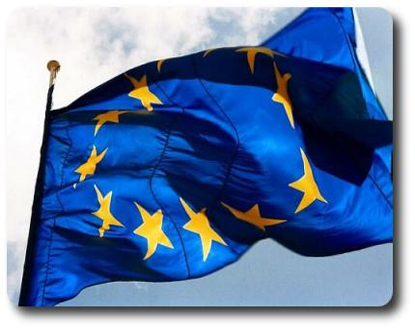There is a cultural ambivalence in Germany regarding money and debt. For anyone trying to understand the Germans’ relationship with money and debt in the context of the eurozone crisis, all roads lead to Frankfurt.
Home to two central banks, the Bundesbank and the European Central Bank (ECB), the German financial capital also hosts a baroque building with yellow plaster in the shadow of the ECB tower: this is where the great German poet Johann Wolfgang von Goethe was born in 1749.
The Goethe House, now a museum, features a fascinating exhibition, “Goethe and Money”, explaining how societal behaviors towards money illuminate Goethe’s writings, which in turn have shaped Germans’ relationships with money.
Goethe was born into a wealthy environment, thanks to a prosperous family business and some advantageous marriages. Although he maintained friendly relations with several banking families – he himself nearly married a banker’s daughter – the losses suffered by financial institutions in the aftermath of the Napoleonic wars prompted him to distrust banks. His personal account books show he was far from the stereotype of the thrifty German. He justified his extravagances by saying they were “essential for the development of his personality.”
He was much more rigorous when, from 1782, he was appointed Minister of Finance for the Duchy of Saxe-Weimar, the borders of which corresponded to the western part of the modern-day state of Thuringia. This experience shaped his thinking and inspired his masterpiece in verse, Faust – mandatory reading in all German schools – whose argument revolves around the famous “Faustian pact” between the titular scholar and the devil, incarnated by Mephistopheles. Mephistopheles promises Faust to fulfill all his wishes on Earth, but if Faust ever seeks to eternally prolong a moment of his existence, then Mephisto will take his soul.
The second Faust, published posthumously, opens with the court of a hedonistic emperor. The royal treasurer reports that “the coffers remain empty,” much like the cellars, drained by perpetual festivities. The very persuasive Mephistopheles proposes turning paper into money. This intrigues the debt-laden emperor: “I’m fed up with these eternal ‘ifs’ and ‘buts’. There isn’t enough money: very well, find us some.” The tickets he signs boost consumption so effectively that from then on, “half the world dreams only of banquets while the other struts in new clothes.” It is only once Mephisto and his accomplice Faust have vanished that someone realizes that the value of the tickets is no longer tied to any material equivalent – reserves of gold, for instance – but to the promise of gold still in the mines.
The parallel between Faust’s fable and the capital indispensable for the industrial revolution was not lost on Goethe’s contemporary readers.
Let us recall that in German, the word “Schuld” means both a “debt” and a “moral fault”: the indebted countries of the eurozone are regarded as “Schuldensünder”, that is, “debt sinners”.
Goethe understood well that money could have a positive role in the development of well-being but feared that its excessive use might have harmful consequences.
Thus, there is a link between current attitudes and Goethe’s Faust: “the choice between blessing and curse is in the hands of humankind.”
“It is a very German attitude, even today, to see the limits and strive to control things within those limits.”


